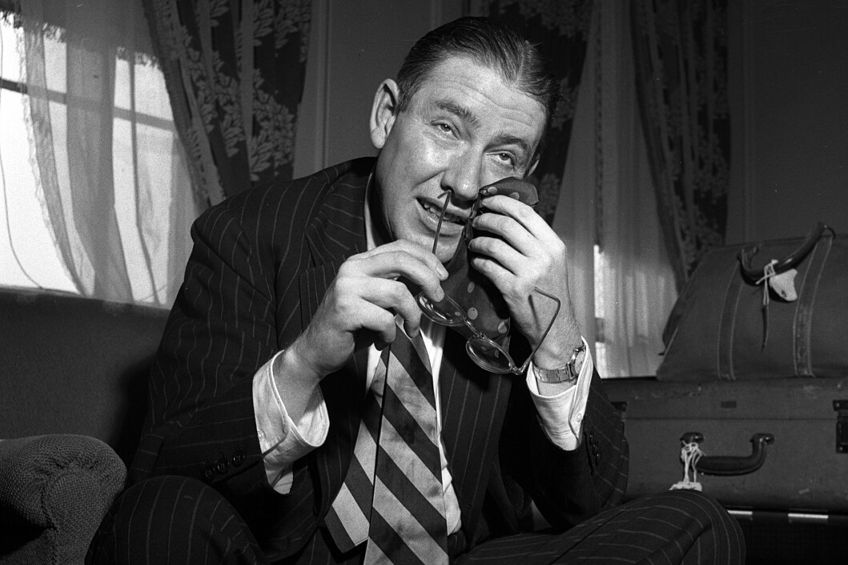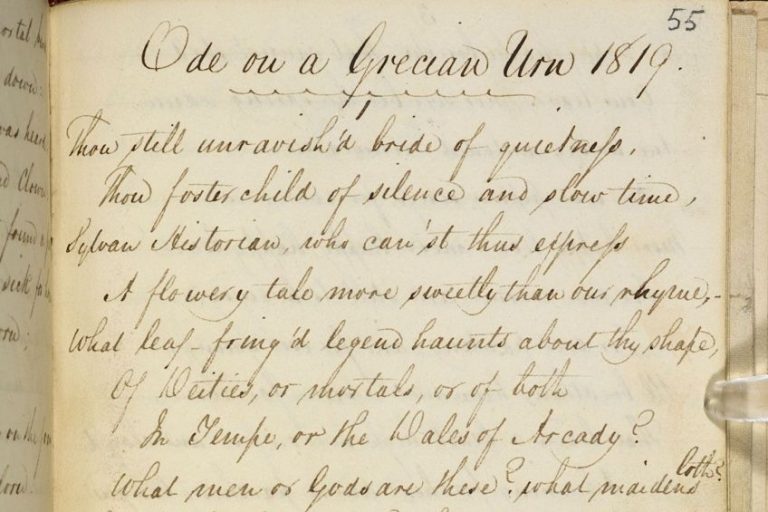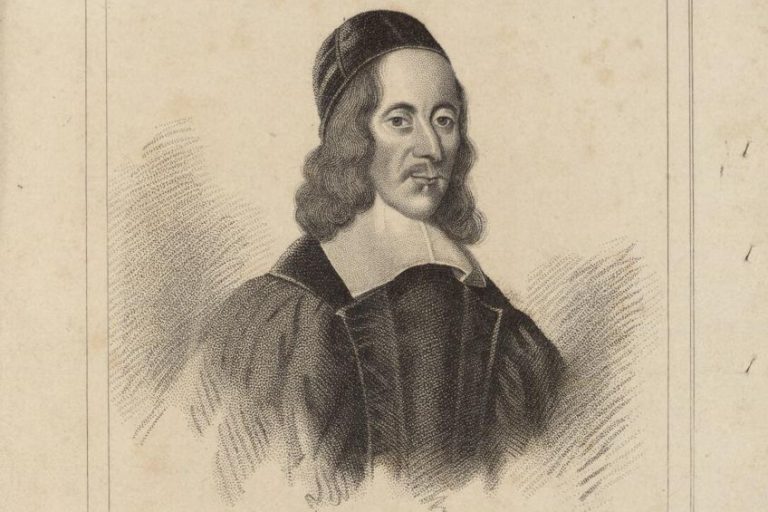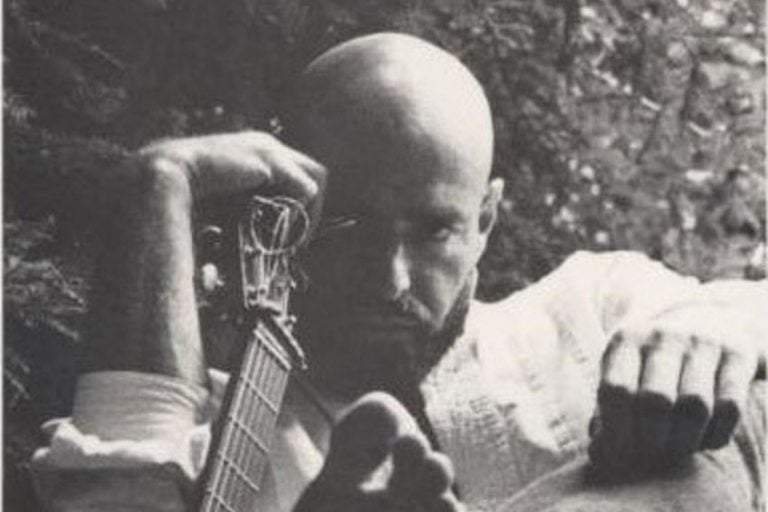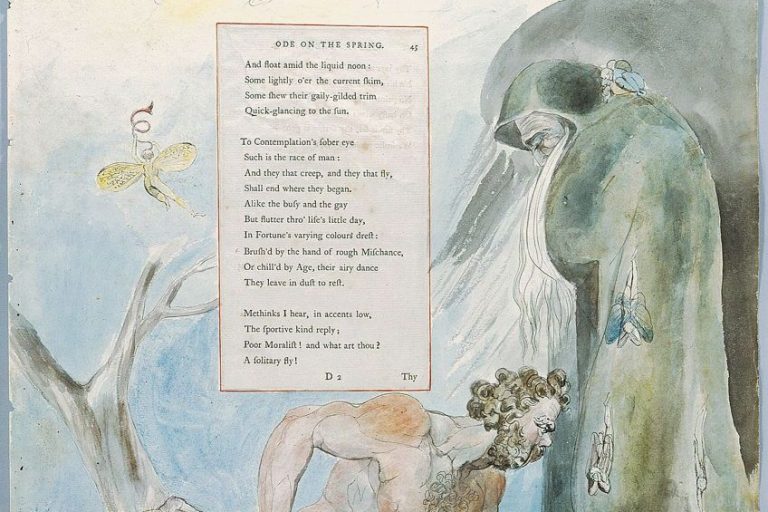Funny Poems – A Look at the Lighter Side of Poetry
Poems can be about whatever you want them to be about, and so, of course, there have been many poets who have decided that that means they can crack some jokes! There are many poems out there that are rather funny, and today, I have thrown together a list of 15 poems that may just tickle the funny bone a little. However, it is also worth remembering that humor is a very subjective thing and that we all have different ideas about what is and is not funny. So, not every poem below will be funny to you, but it should be a good place to start at the very least!
Table of Contents
- 1 A Few Funny Poems
- 1.1 There was an Old Man with a Beard (1846) by Edward Lear
- 1.2 Phantasmagoria (1869) by Lewis Carroll
- 1.3 My Shadow (1885) by Robert Louis Stevenson
- 1.4 Monosyllabics (1914) by Laura E. Richards
- 1.5 may i feel said he (1923) by ee cummings
- 1.6 Eletelephony (1930) by Laura Elizabeth Richards
- 1.7 The People Upstairs (1932) by Ogden Nash
- 1.8 Messy Room (1974) by Shel Silverstein
- 1.9 The Three Little Pigs (1982) by Roald Dahl
- 1.10 The ABC (Late-20th Century) by Spike Milligan
- 1.11 My Doggy Ate My Essay (2009) by Darren Sardelli
- 1.12 The Life Of A Cupcake (2014) by Shelby Greer
- 1.13 Doggy Heaven (2014) by Larry Huggins
- 1.14 Don’t Go Into the Library (2017) by Alberto Ríos
- 1.15 Do You Carrot All For Me? (21st Century) by Unknown
- 2 Frequently Asked Questions
A Few Funny Poems
We all approach humor in a different way, and humans have also been telling jokes for a very long time. There are jokes from ancient times, but those are only the jokes that managed to be recorded. There are many more jokes and it’s even possible that the most primitive of human origins when we were little more than cavemen had their own humor, and as long as we have been recording things through written language, we have also recorded humor.
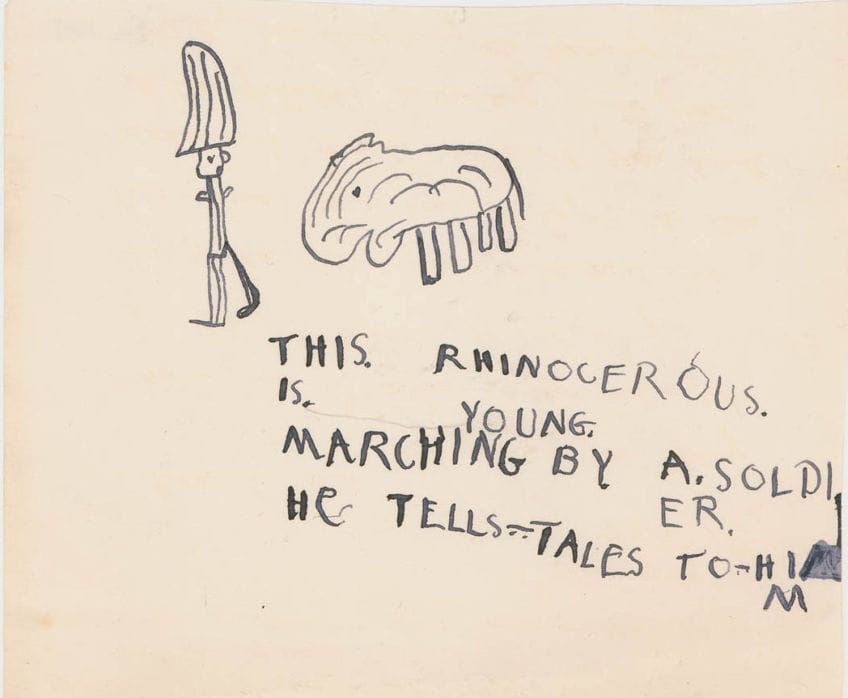
For instance, there are comedic dramas from ancient Greece, and, in English, the works of Shakespeare are often filled with humor. This doesn’t indicate that any of these examples are actually funny, but they are still jokes. Today, the goal is not to make you laugh but to instead highlight some of the humorous poems that have been produced over the centuries. The earliest poem I listed here is from 1846, but funny poems do predate even that. However, these 15 poems should be a good place to start on your own journey to find some funny poems worth checking out.
So, with some of that waffling out of the way, I say we jump on in and see what kinds of poems we can find, explore, and celebrate!
There was an Old Man with a Beard (1846) by Edward Lear
| Date Published | 1846 |
| Type of Poem | Limerick |
| Rhyme Scheme | AABBA |
| Meter | Variable |
| Topic | A man with a beard |
There was an Old Man with a Beard is a fantastic example of a funny poem to start things off with because it comes from one of the great popularizers of the limerick. This five-line poetic structure has always been tailored for jokes because of its rhyme scheme that perfectly allows for the last line to be a punchline. In this case, the poem is aimed at kids. The first four lines describe how a bunch of birds have settled into this old man’s big beard, and the last line proclaims that they’ve all built nests in there!
This is the kind of nonsense that can often be expected of limericks in particular, but it’s also what makes the format so great for funny poems.
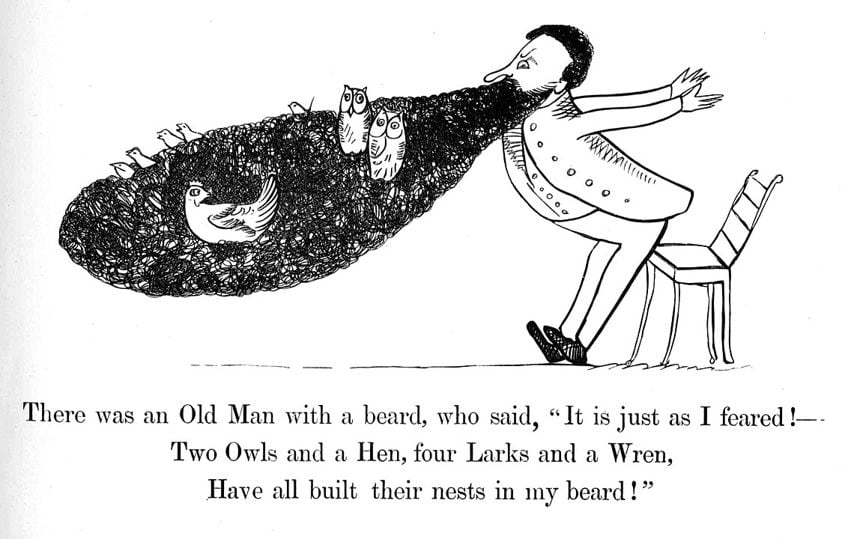
Phantasmagoria (1869) by Lewis Carroll
| Date Published | 1869 |
| Type of Poem | Narrative |
| Rhyme Scheme | ABAAB |
| Meter | Iambic tetrameter |
| Topic | Ghost and man |
Phantasmagoria is a lengthier poem than many of the funny poems in this list, but it is also a poem by one of the most famous nonsense writers, Lewis Carroll of Alice’s Adventures in Wonderland fame. This poem is all about a discussion between a ghost and a man, and they are portrayed as being rather similar to one another. Humans have jobs to do, after all, and ghosts are the same, they need to haunt us! It’s almost like something out of Beetlejuice!
It’s a rather fun and delightful example of a humorous poem, and a phenomenal older example to use.

My Shadow (1885) by Robert Louis Stevenson
| Date Published | 1885 |
| Type of Poem | Quatrain poem |
| Rhyme Scheme | AABB |
| Meter | Iambic heptameter |
| Topic | Curiosity |
My Shadow is not quite as humorous as some of the other funny poems on this list, but it is an entertaining one, and this is actually a great thing to point out. Not all poems intended to be humorous in some way are necessarily all that funny in a laugh-out-loud sense, as you’ll see with some of the other poems you’ll find in this article, but they are all generally trying to be entertaining. In this poem, the way that it tries to entertain is by having the speaker consider his own shadow. He has no idea what the shadow actually is and has no way to understand it, and so he starts to think of his own explanations for what it is in the first place.
He repeatedly even mocks his own shadow and treats the shadow as someone separate from him.
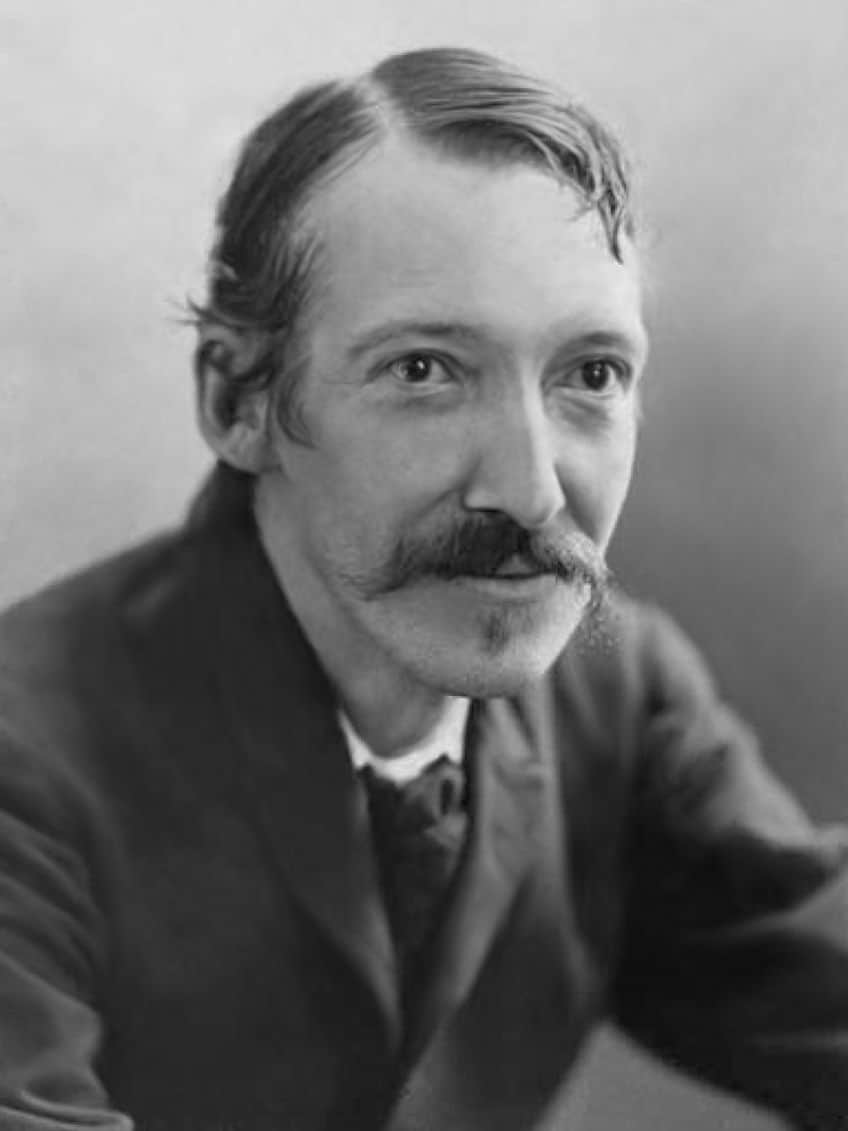
Monosyllabics (1914) by Laura E. Richards
| Date Published | 1914 |
| Type of Poem | Children’s poem |
| Rhyme Scheme | Variable |
| Meter | None |
| Topic | Single-syllable repetition |
Monosyllabics is a funny short poem that is all about the form. It only makes use of monosyllabic words, which are words that only have one syllable, and there is constant and consistent rhyme throughout the piece. These factors together, as the poem tells a brief, funny story, contribute to it being a fun and entertaining poem for children.
In addition, the use of only monosyllabic words means that a child who is reading this poem may just learn that big word in the process of reading and enjoying this poem!
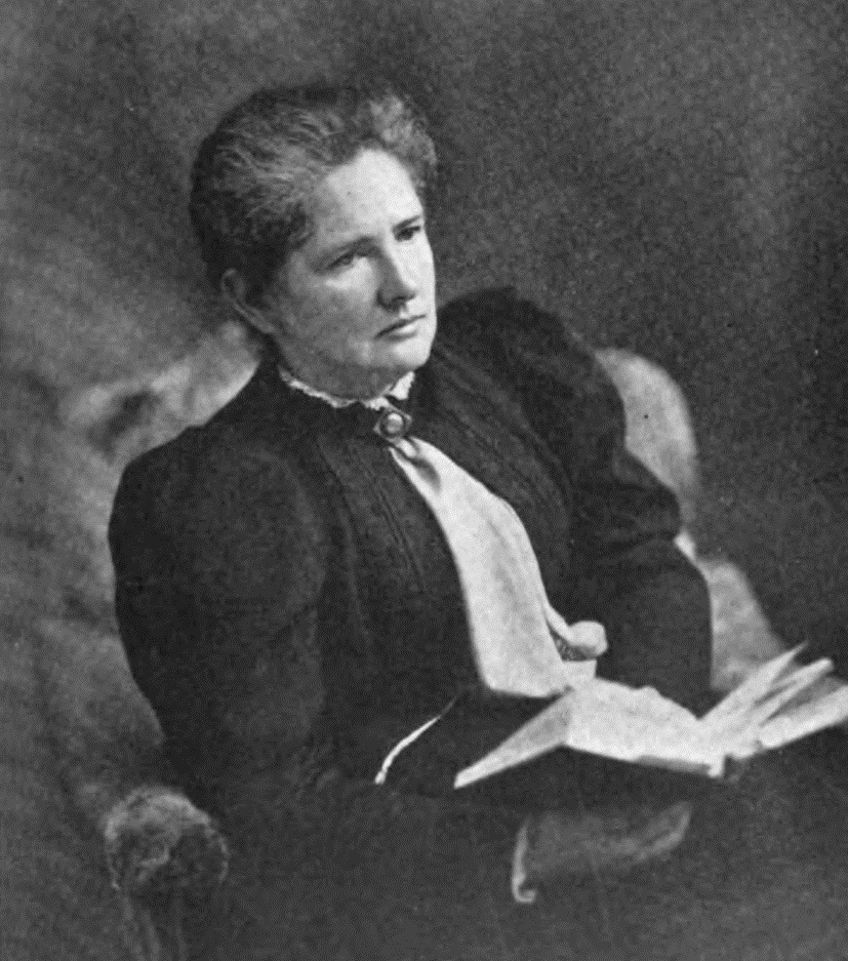
may i feel said he (1923) by ee cummings
| Date Published | 1923 |
| Type of Poem | Free verse poem |
| Rhyme Scheme | AAAA |
| Meter | None |
| Topic | Dialogue |
may i feel said he is a rather strange poem, as is rather common when looking over and of the work of ee cummings, and it is mostly humorous because of its use of language. The actual poem can be seen as a rather sad one as it is about a marital affair. However, every line ends with either “he” or “she”, and it becomes confusing to read in a tongue-twister kind of way. This is something you’ll also often find in funny poems because many of them want to play around with language itself.
So, while the content of this poem could be analyzed from a more serious perspective, the format that is used is far sillier and strange.
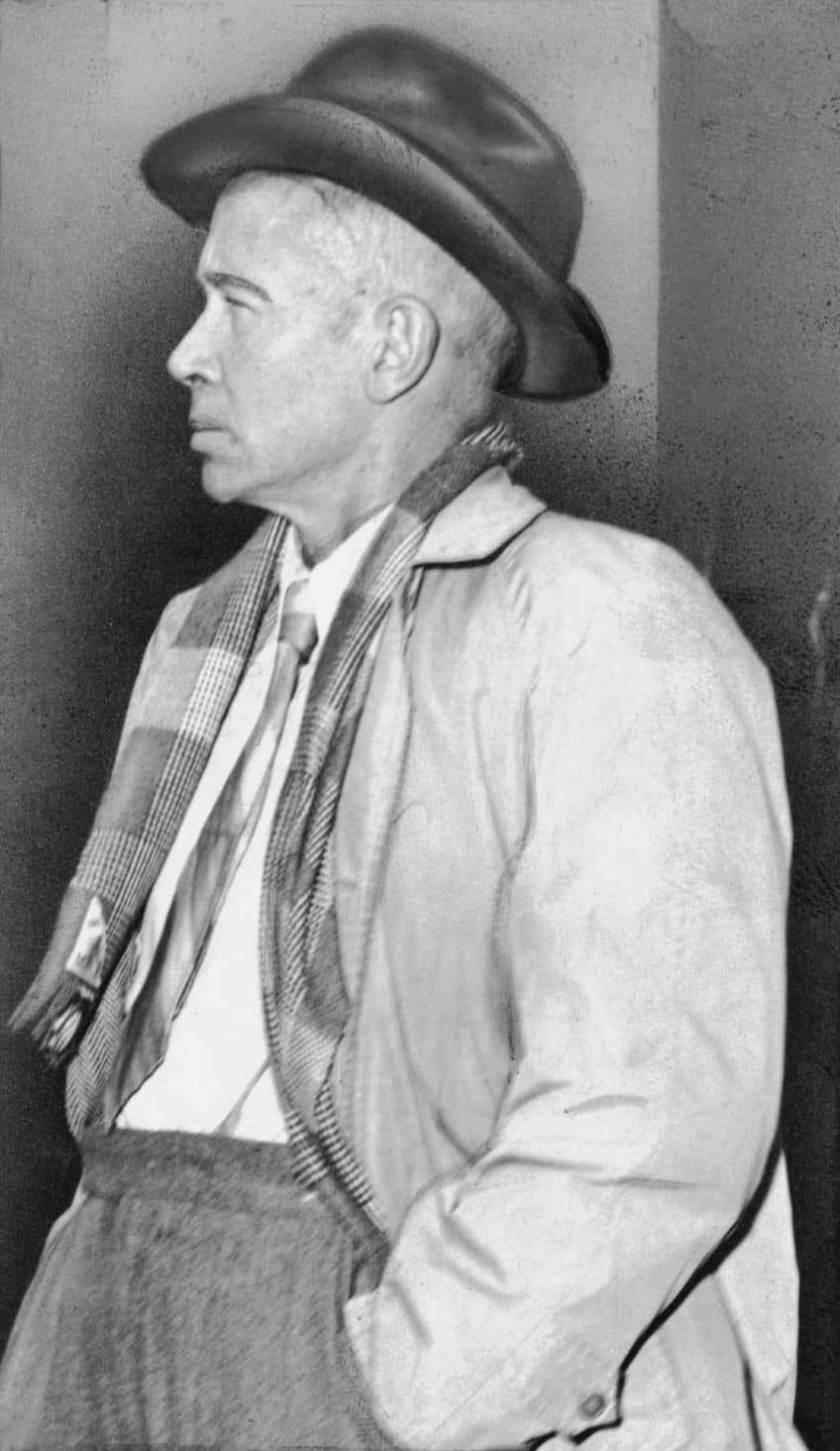
Eletelephony (1930) by Laura Elizabeth Richards
| Date Published | 1930 |
| Type of Poem | Nonsense poem |
| Rhyme Scheme | AABB |
| Meter | Iambic tetrameter |
| Topic | An elephant using a phone |
Eletelephony is a poem full of puns. The use of puns is very common in funny poems, as will be seen in some of the other humorous poems in this list, but when it comes to the particular puns that are used in this poem, they have to do with elephants. The entire poem is about an elephant using a telephone, but it does so by continuously creating new puns, such as “telephant” and “elephone” to hammer this home. Furthermore, the poem is a fantastic example of the kind of funny poem that would be perfect for a child as it also incorporates a tongue-twister element to the whole affair. The puns can become difficult to pronounce as they jump from one to the next word that sounds similar but is not quite.
Basically, this poem is just fun to read out loud!
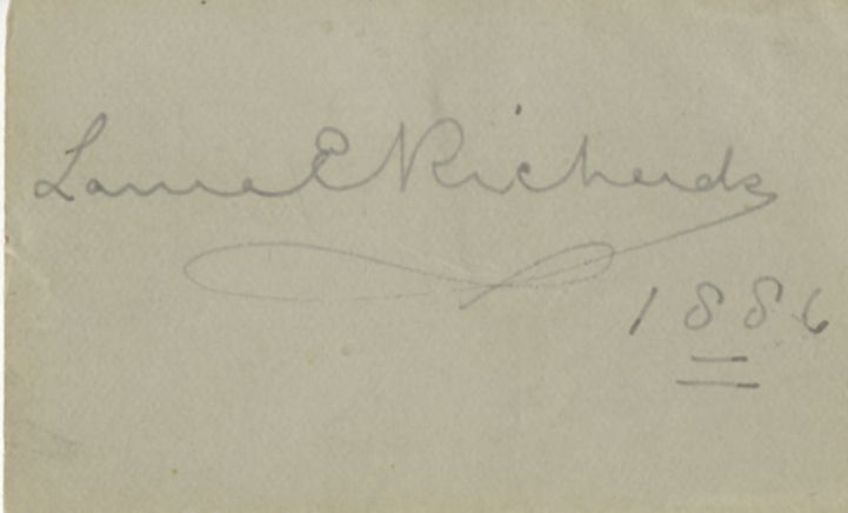
The People Upstairs (1932) by Ogden Nash
| Date Published | 1932 |
| Type of Poem | Nonsense poem |
| Rhyme Scheme | AABB |
| Meter | Variable |
| Topic | Neighbors |
The People Upstairs is exactly the sort of poem that many would understand despite its highly hyperbolic delivery. When it comes to funny poems, we can often see this sort of thing because exaggerating everything is just part of the game! In this case, the poem describes the annoyance that the speaker feels at having to hear his upstairs neighbors being constantly and consistently noisy and irritating. Many of us may feel the same way if we have noisy neighbors. The poem describes them as being like a bowling alley or playing with pogo sticks.
The poem may not make one laugh out loud, but it certainly would make many of us nod annoyingly at the thought of our own noisy neighbors.
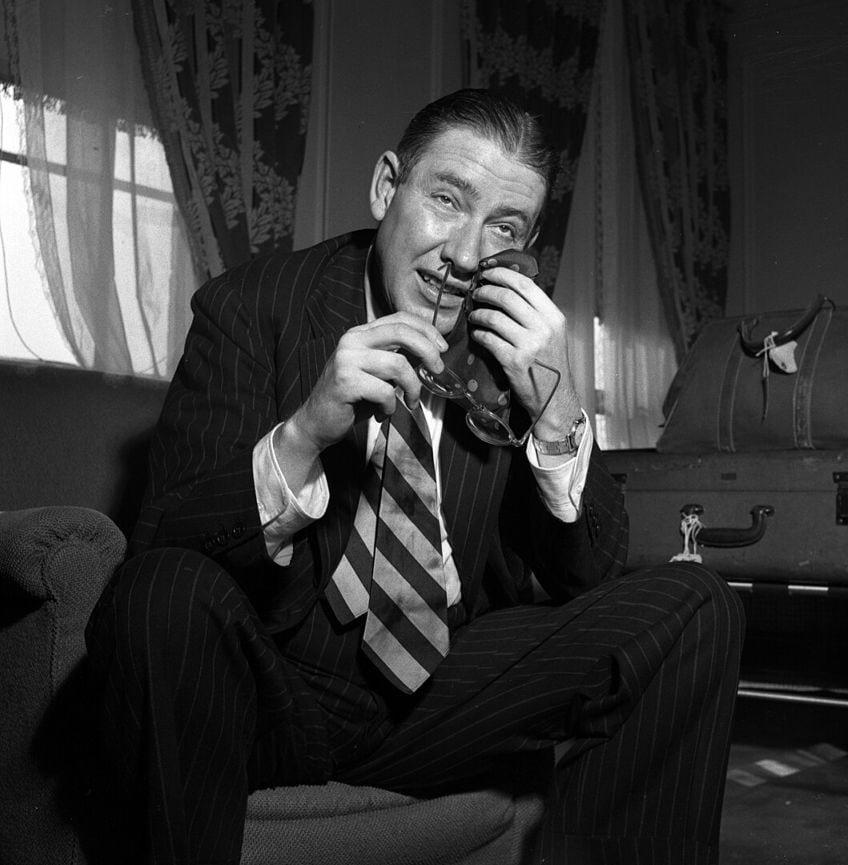
Messy Room (1974) by Shel Silverstein
| Date Published | 1974 |
| Type of Poem | Children’s poem |
| Rhyme Scheme | Variable |
| Meter | Variable |
| Topic | Description of a messy room |
Messy Room is one of the great poems by Shel Silverstein. His work was often aimed at children, and so there are many funny poems under his belt. In this case, the poem is all about the thing many children have, a messy room. The poem goes to pains to describe all the ways that the room is messy, such as having clothes thrown about and books that are disorganized, but the punchline comes at the very end when the speaker, who has been describing everything, has to admit that this is his own room.
It’s a cutesy way to end off a short narrative like this, and it likely rings true for many of us out there.
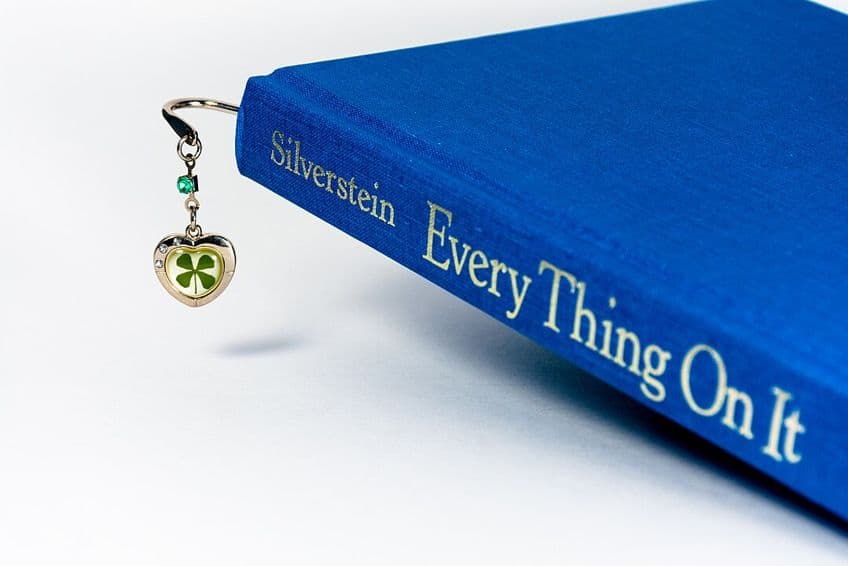
The Three Little Pigs (1982) by Roald Dahl
| Date Published | 1982 |
| Type of Poem | Parody |
| Rhyme Scheme | AABB |
| Meter | None |
| Topic | Parody of Little Red Riding Hood |
The Three Little Pigs is one of the greatest funny poems that Roald Dahl wrote. In his life, he produced several of these retellings of childhood stories, but instead of doing what was expected, these poems were often rather dirty and/or dark. This one is no exception. While we often think of children’s stories and poems as being toned down and more family-friendly, this has not always been the case. There are many examples of stories for kids being very dark, and these poems fit into that category very well.
However, because of their more irreverent tone, they make for some entertaining reading for kids because children don’t just want to read the sanitized stuff, they want the rough stuff!

The ABC (Late-20th Century) by Spike Milligan
| Date Published | Late-20th Century |
| Type of Poem | Children’s poem |
| Rhyme Scheme | Loose ABAB |
| Meter | None |
| Topic | The alphabet |
The ABC is a great example of a funny poem aimed at kids because it also serves as something of an educational piece. The poem is all about the alphabet. However, rather than being more boring about it and simply listing the ABCs, it instead reimagines the letters of the alphabet as a series of opinionated individuals who are arguing with one another. Many of the letters insult others while making friends with others, and it comes across as a messy and disorganized thing that perfectly encapsulates just how wild and chaotic language can be in general.
Not all funny poems are necessarily the type of funny that involves laughing out loud at what is on display, but rather as something entertaining and fun.
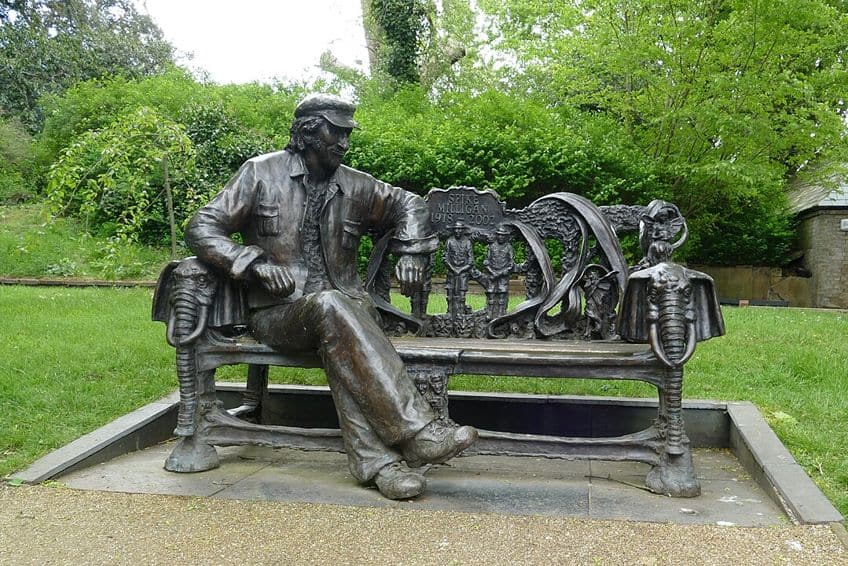
My Doggy Ate My Essay (2009) by Darren Sardelli
| Date Published | 2009 |
| Type of Poem | Humorous poem |
| Rhyme Scheme | ABCB |
| Meter | Variable |
| Topic | A dog eating homework |
My Doggy Ate My Essay is a poem that tells a narrative over the course of several stanzas about one of the oldest silly jokes that children tell, and that is that the dog ate my homework. I am not sure if this is an actual excuse that has ever been used by real human beings, but it certainly has become a mainstay and famed cliché in the media for a very long time. Perhaps there’s a reason for that. However, when it comes to funny poems like this one, the joke often comes from an inversion of expectations, because the speaker claims that while the dog did eat his homework, he also cleaned his bedroom.
The humor comes from this kind of absurdism, and the absurd is often found in humor throughout the world.
The Life Of A Cupcake (2014) by Shelby Greer
| Date Published | 2014 |
| Type of Poem | Humorous poem |
| Rhyme Scheme | AABB |
| Meter | Variable |
| Topic | The life of a cupcake |
The Life Of A Cupcake is a narrative about what the title tells us it is about. Many poems are rather straightforward with what they are about in their titles, and funny poems are especially guilty of this. In this particular poem, the story is both humorous and rather dark. The poem feels like something out of the R-rated animated comedy, Sausage Party, but less R-rated. The poem describes the way in which this cupcake came to be before ending with the cupcake being eaten and dying.
The dark ending definitely puts this particular poem into the realm of dark humor rather than something more light-hearted and aimed at kids.
Doggy Heaven (2014) by Larry Huggins
| Date Published | 2014 |
| Type of Poem | Humorous poem |
| Rhyme Scheme | AABB |
| Meter | Variable |
| Topic | Heaven from a dog’s perspective |
Doggy Heaven is a great example of the many funny short poems out there. It is only a few lines long, but it provides us with a nice setup and punchline that allows it to function more as a joke than a more standard poem. This is one of the things that funny poems can accomplish when they are made to be short and sweet. In this case, the poem discusses how all dogs go to heaven and they get to run around and play forever, but it ends with the punchline that the reason it’s so grand in doggy heaven is because there are no cats around. This is the kind of humorous poem that would fit in well in a book of jokes for kids.
It may be simple, but its setup and execution are fantastic and it doesn’t need to be any longer than it is.
Don’t Go Into the Library (2017) by Alberto Ríos
| Date Published | 2017 |
| Type of Poem | Free verse poem |
| Rhyme Scheme | None |
| Meter | None |
| Topic | Libraries |
Don’t Go Into the Library is a poem that wants to discuss the power of the library as a means of transforming our minds, but it does so through a rather humorous lens. While the poem does have a more serious message behind it, which is that we can use libraries to grow as people, it also uses hyperbolic statements that are reminiscent of many funny poems out there. It acts as if the library is an actual dangerous place that will harm you if given the chance.
This is a way of looking at the library that most of us would never consider in a million years, and so the absurdism of the whole idea allows us to see this as both a joke and a genuine message.
Do You Carrot All For Me? (21st Century) by Unknown
| Date Published | 21st century |
| Type of Poem | Humorous poem |
| Rhyme Scheme | None |
| Meter | None |
| Topic | Vegetables |
Do You Carrot All For Me? is a poem of puns. When it comes to funny short poems, there are many ways that a jokey piece of verse could be given to us, and, in this case, it is by having a jokey fruit or vegetable wordplay joke in each and every line. For instance, it states that the speaker’s heart “beets” for poetic object and that they are a “peach”. These little puns are silly, but they are arranged in a row to the point of being ridiculous, and this is common in many funny poems. A variety of poems of this variety will make sure to hit you over and over again with an idea to the point of it being overused, but that is the purpose of something like this. It wants to make you laugh and/or smile and being over-the-top is a surefire way to do just that.
This has only been a list of 15 funny poems. There have been some longer ones and also some funny short poems, and you may not even see any of these poems as funny at all, and you are well within your rights to feel exactly that way. However, the funny poems that have been discussed should be a good introduction for those who are interested in finding some more funny poems out there, because there certainly are far more than only those that have been discussed here. There are funny poems all over the place, and all you need to do is search the internet for them! A useful hint is to look up funny limericks because that’s often where you’ll find some good (and often dirty) gems to read!
Frequently Asked Questions
What Are Funny Poems?
A funny poem is pretty much a poem that is intended to be humorous in some way. We all have different ways in which we look at humor, and what I find funny, you will not necessarily find funny. However, when it comes to funny poems, regardless of whether or not they’re funny short poems or far larger ones, they are all typically unified in their attempt to be entertaining and enjoyable rather than attempting to be deep, introspective, or thought-provoking. Not that humor cannot be these things, but humor does not always want to be these things.
What Are the Common Characteristics of Funny Poems?
The general central premise of funny poems is that they are attempting to be funny and entertaining. The entertainment aspect can mean that attempts at humor can often incorporate other elements that make things fun. For instance, you’ll often find things like rhyme in funny poems, the use of hyperbole, or just plain old nonsense. This is not universal, of course, but when someone tries to be funny, they don’t typically try to be serious at the same time, so silliness is often to be expected.
Are There Specific Categories for Funny Short Poems?
While any poem under the sun can be a funny poem, there are some types of poems that are often known for being humorous. Some of the best-known instances of short funny poems are those that are classified as limericks. These poems are short, at only five lines, and have a distinct rhyme scheme that makes them particularly entertaining, and their very structure includes space for a punchline. All of this indicates just how good the limerick is for humorous poems.
Which Poets Are Known for Writing Funny Poems?
Many poets have tried their hand at writing humorous poems, and some of the best-known poets who have done so include Edward Lear, Shel Silverstein, and Roald Dahl. However, there are also some writers, such as Lewis Carroll, whose entire fiction and poetry career is defined by a dedication to the writing of nonsense that is meant to make children smile. So, there are many writers out there who have specialized in humor.
What Are Some of the Most Famous Funny Poems?
There are so many funny poems out there that are worth a read. Some good examples of funny poems include Eletelephony (1930) by Laura Elizabeth Richards, The Three Little Pigs (1982) by Roald Dahl, and My Doggy Ate My Essay (2009) by Darren Sardelli. However, it should be noted that the poems that have been listed in this answer are fundamentally narrow. There are so many other funny poems out there and one short answer, or even one article with 15 examples, is not enough to cover the full breadth of what all is out there. So, if you want to find some more, you’ll have to do some searching.
Justin van Huyssteen is a freelance writer, novelist, and academic originally from Cape Town, South Africa. At present, he has a bachelor’s degree in English and literary theory and an honor’s degree in literary theory. He is currently working towards his master’s degree in literary theory with a focus on animal studies, critical theory, and semiotics within literature. As a novelist and freelancer, he often writes under the pen name L.C. Lupus.
Justin’s preferred literary movements include modern and postmodern literature with literary fiction and genre fiction like sci-fi, post-apocalyptic, and horror being of particular interest. His academia extends to his interest in prose and narratology. He enjoys analyzing a variety of mediums through a literary lens, such as graphic novels, film, and video games.
Justin is working for artincontext.org as an author and content writer since 2022. He is responsible for all blog posts about architecture, literature and poetry.
Learn more about Justin van Huyssteen and the Art in Context Team.
Cite this Article
Justin, van Huyssteen, “Funny Poems – A Look at the Lighter Side of Poetry.” Art in Context. February 20, 2024. URL: https://artincontext.org/funny-poems/
van Huyssteen, J. (2024, 20 February). Funny Poems – A Look at the Lighter Side of Poetry. Art in Context. https://artincontext.org/funny-poems/
van Huyssteen, Justin. “Funny Poems – A Look at the Lighter Side of Poetry.” Art in Context, February 20, 2024. https://artincontext.org/funny-poems/.


